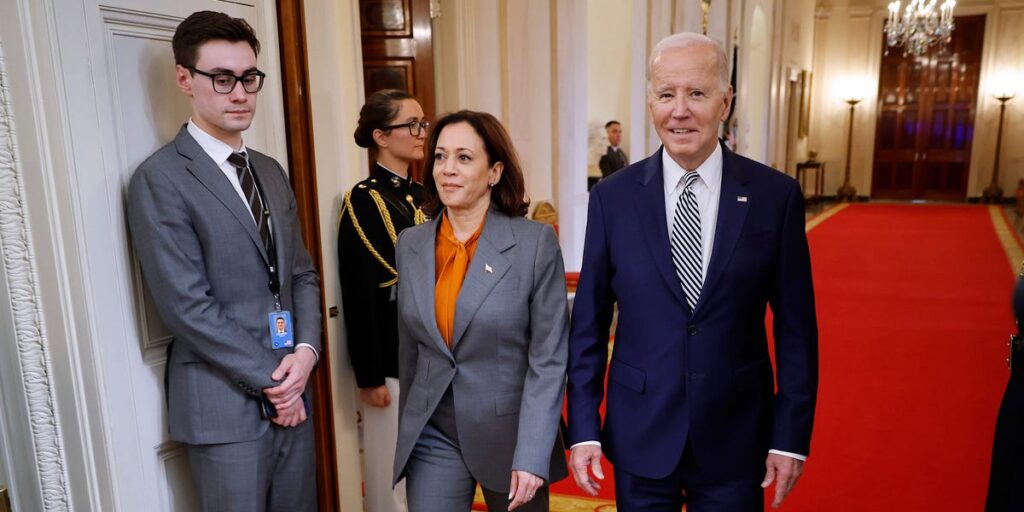- Biden's lackluster performance in the debate with Trump has alarmed many Democrats.
- He also highlighted the party's past struggles in building a talent development team of future leaders.
- The debate will force Democrats to rethink how they transfer power to a younger generation.
After President Joe Biden's mediocre performance in Thursday night's debate, many Democrats are beginning to panic.
With voters concerned about his age and already unsure about whether Biden can serve a second term, party leaders had urged the president to use the debate not only to reassure voters but also to create the impression that he could turn the race in his favor.
But that didn't happen, and now many Democrats are wondering whether Biden should drop out of the race.
The fact that he was forced to make this decision just five months before the election is partly due to one of the Democratic Party's long-standing challenges: its slow, almost tortoise-like transition of power to the younger generation.
Generational change
For two decades, Nancy Pelosi has led House Democrats as part of a leadership team that included veterans Steny Hoyer and Jim Clyburn. It wasn't until 2023 that Gen Xer New York Rep. Hakeem Jeffries took over as leader of the House caucus.
In House primaries across the country, younger Democratic candidates are often ignored by party leaders and organizations, who often support more established candidates.
In 2020, Biden promised to be a “bridge” to a new Democratic Party. But four years later, he has decided to run for reelection.
His debate performance with former President Donald Trump exposed this resistance to generational change. If Biden remains in the race but cannot convince wavering voters that he is fit for the presidency, other key races could be in jeopardy for the Democratic Party.
What does the Democratic Party need?
Jeffries' recent promotion, along with those of Katherine Clark to House Democratic Leadership Leader and Pete Aguilar to House Democratic Caucus chairman, marked a welcome generational shift that the party has largely eschewed in favor of experience.
Biden's selection of Kamala Harris as his vice president also signaled something of a passing of the baton: Shortly after they won the 2020 election, Harris said the two would be “full partners.” The president agreed, saying he would not make any major personnel decisions without Harris.
Many Democrats welcomed the emergence of this younger generation, especially since they have often lagged behind Republicans in building their farm teams of future leaders.
The concern now is that recent efforts may have been too little, too late.
So far, Biden has shown no signs of dropping out of the race, and Democrats are hoping he will perform well if he remains the nominee. His political fate will have broad implications for lower-tier races.
Whatever Biden decides to do, his performance in the debate is likely to accelerate Democratic efforts to cultivate younger leaders who could one day run for the White House, especially as Gen X, millennials and Gen Z make up a large portion of the electorate over the next decade.

